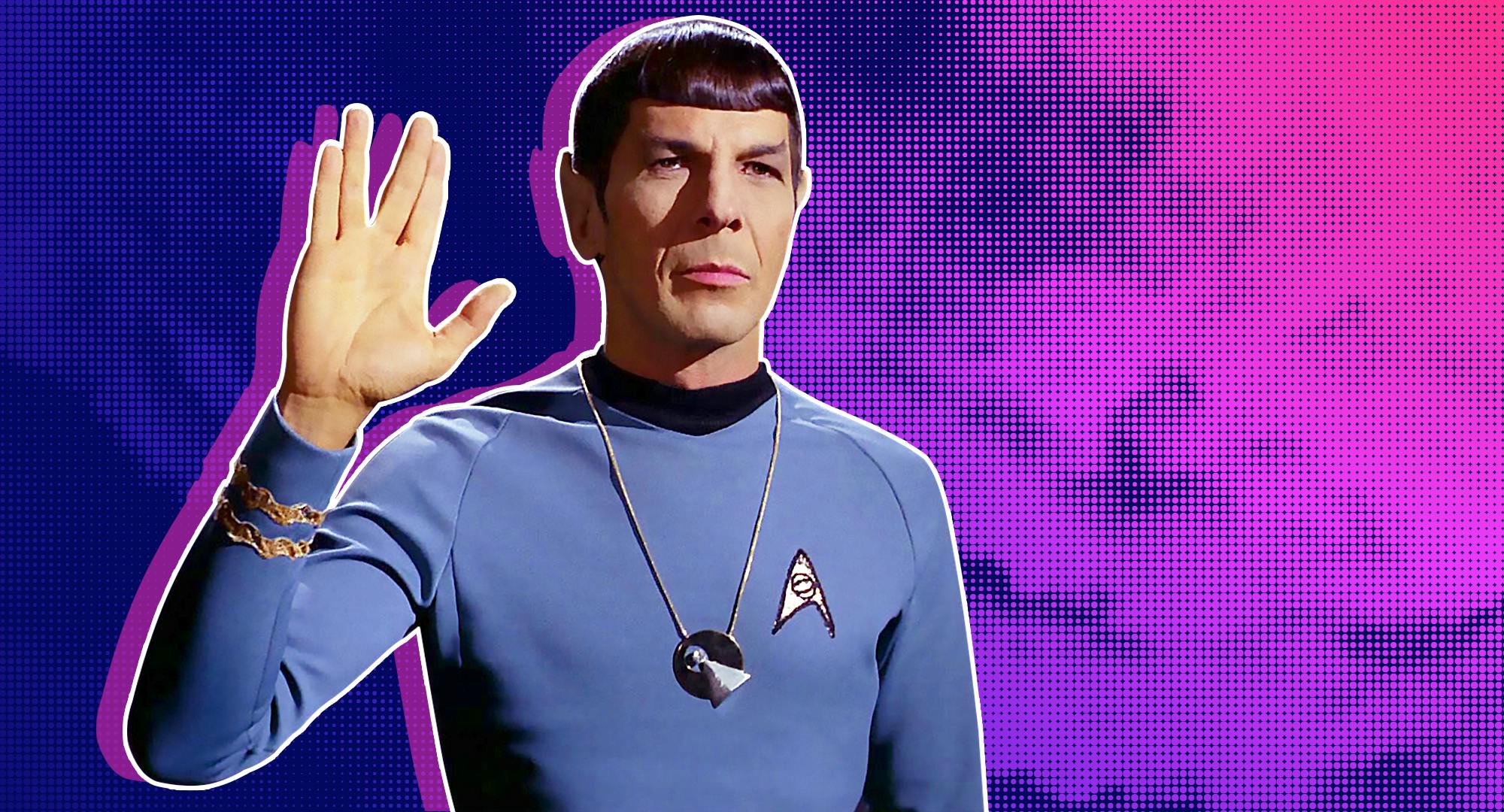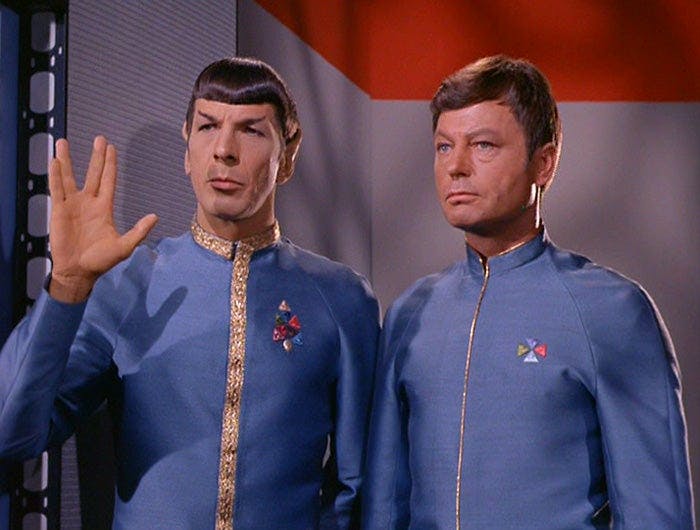Published Jul 7, 2020
The Case For the Vulcan Salute During COVID-19
A familiar gesture in a time of uncertainty

StarTrek.com | Shutterstock/Kundra
COVID-19 is the pandemic that won’t go away. Countries around the world adjusted their routines, economies, and plans as governments around the world realized that this virus must be taken seriously. Lockdowns, curfews, and other restrictions became a part of our lives.
As we now know, social distancing will be around for some time to come — especially in America where cases began to spike once again at the end of June. Perhaps the bigger changes were easier to get used to. For at least a few weeks, many around the United States and the world got used to going out for only essential reasons, but not everyone changed their habits quickly, and some people were resistant to making necessary changes at all.
Remember handshakes, fist-bumps, and hugs? Not only did we realize that these small greetings were unhygienic, they were deeply ingrained into our way of life. Making changes was probably easier for parts of the world that didn’t rely on contact to say hello. Japan, Thailand, and some parts of China bow as a greeting, but even countries where contact greetings weren’t the norm had sacrifices to make.
In the United States and other parts of the world, handshakes are meant to be a simple introduction, but they can mean so much more. College students and young adults searching for work are often told to work on their handshake. One’s grip should be firm, but not too strong so as to hurt the other person.
We teach young people that handshakes can make or break a first impression with a possible employer, university recruiter, or scholarship committee. That’s a lot of weight for a small gesture to carry.
I lived in Argentina for 4 and a half years and am originally from El Salvador. When I was in Buenos Aires it was rare to shake hands if you were with a local. Handshakes were seen as hostile and impersonal, especially in casual, non-professional settings.
Instead people often greeted you with a kiss on the cheek. Though exchanging a kiss brings you into even closer contact, studies show that it may be more hygienic than a handshake. Still, this gesture can be seen as invasive or intimate. Governments where kissing on the cheek is common have asked people to refrain from doing so as a precaution. Immigrants from countries where cheek-kissing is common have also had to change their ways in our new contactless era.
Health experts have been asking the public to improve their hand-washing regimen for years now to prevent the spread of norovirus, salmonella, and other infections. These days, we’ve all memorized songs that can help us wash our hands for 20 seconds.

StarTrek.com
Like so many others, my interactions with others have changed. I still wear a mask in public, take sanitizing wipes out whenever I go to the grocery store because I can’t be sure if my grocery store is still sanitizing carts, and take some hand sanitizer for my personal use.
At the grocery store I notice that people now step out of the way when I want to reach for an item. I, too, choose to wait for someone at a safe distance if they’re looking for something I also want. I recognize these rites of patience, and have resorted to nodding to people or using my face a bit more often to acknowledge their presence.
I wash my hands after handling my groceries and wipe down surfaces. The dynamic of social distancing has changed my friendships and relationships. I haven’t seen anyone outside of my family in months now, but I know it’s also for the best.
Once we find a solution to this people will probably view germs, viruses, and close contact differently. Scholars are already theorizing how COVID-19 may change architecture, but perhaps it could also change how we greet each other for a long time to come.
The Vulcan salute has been on my mind lately. Star Trek fans know that Leonard Nimoy searched withinhis Jewish roots to come up with the greeting. He felt that humans who saw Vulcans for the first time would need to see something special too, and so he adapted the salute, which normally uses two hands, to a gesture that only uses one.
But after the collective grief the world has faced, we can also remember that Vulcans also tell the receiver of this gesture to do one thing: “Live long, and prosper.” As many of us deal with loss of many things: routines, jobs, people we love, and even old beliefs in 2020, we must adjust to how to move our bodies as part of our new normal.
May we adapt no-contact greetings that show how much we love and care for one another. As they led us into our warp era after humanity’s First Contact, perhaps Vulcans and their traditional salute can be a beacon in the light as we emerge from the specter of Corona. Vulcans can help us with this.
A Star Trek Pandemic-Themed Watch List
Ingrid Cruz (she/her) is a freelance writer and illustrator. She enjoys coffee, traveling, and baking. You can follow her adventures on Twitter or Instagram: @ingridiswriting
